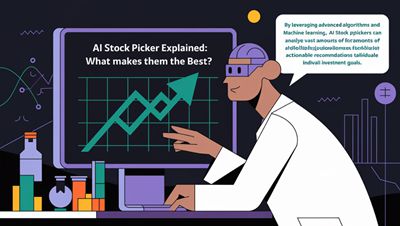Salesforce’s Q2 Earnings Surprise: What It Means for the Enterprise Software Market
Financial Performance and Market Reaction
Salesforce’s fiscal Q2 2025 earnings report revealed a significant earnings surprise, with key financial metrics surpassing analyst expectations. The company reported adjusted earnings per share (EPS) of $2.56, exceeding the anticipated $2.36, and revenue of $9.33 billion, beating the forecasted $9.23 billion. This 8% year-over-year revenue growth, coupled with a 4% rise in after-hours trading, reflects strong market confidence in Salesforce’s financial health and strategic direction.
Despite these positive results, Salesforce shares were down 2% year-to-date in 2024, contrasting with the S&P 500 index’s 17% gain during the same period. This discrepancy suggests that while Salesforce’s recent performance has been strong, broader market dynamics and investor sentiment may have previously weighed on its stock.
AI Integration and Market Positioning
A key driver of Salesforce’s recent success is its strategic focus on AI integration. CEO Marc Benioff highlighted the company’s AI offerings, particularly the new Agentforce AI platform and Einstein Copilot, which are designed to enhance customer success through AI-driven autonomous agents. These innovations position Salesforce uniquely in the market, offering significant advantages in operational efficiency and customer engagement.
Salesforce’s AI strategy is underpinned by the Einstein 1 Platform and Data Cloud, which ensure data privacy, security, and reliability—critical factors for successful AI deployment. The company’s emphasis on trusted data and user access controls addresses widespread concerns about AI trust and ethics, positioning Salesforce as a leader in responsible AI implementation.
Implications for the Enterprise Software Market
Salesforce’s earnings surprise and AI advancements have several implications for the broader enterprise software market:
- Increased Competition and Innovation: Salesforce’s success with AI is likely to spur increased competition and innovation within the enterprise software market. Competitors will need to accelerate their AI initiatives to keep pace, potentially leading to a wave of new AI-driven solutions and enhancements.
- Shift Towards AI-Driven Efficiency: The integration of AI into enterprise software is set to become a standard expectation. Companies will increasingly seek AI solutions that enhance operational efficiency, reduce costs, and improve customer experiences. Salesforce’s AI offerings, which automate tasks and provide actionable insights, set a benchmark for the industry.
- Market Consolidation and Strategic Partnerships: As AI becomes more integral to enterprise software, we may see increased market consolidation and strategic partnerships. Smaller companies with innovative AI solutions could become acquisition targets for larger firms seeking to bolster their AI capabilities. Conversely, strategic partnerships could enable companies to leverage complementary strengths and accelerate AI adoption.
- Focus on Ethical AI and Data Integrity: Salesforce’s emphasis on ethical AI and data integrity highlights the importance of these factors in gaining market trust. Companies that prioritize transparent, ethical AI practices and robust data management strategies are likely to gain a competitive edge.
Potential Challenges and Risks
While Salesforce’s AI-driven strategy presents significant opportunities, it also comes with potential challenges and risks:
- AI Trust and Adoption: Despite the enthusiasm for AI, trust remains a critical barrier. Salesforce’s own research indicates that only 10% of business leaders fully trust AI for decision-making, and 77% express concerns about data integrity and ethics. Addressing these concerns will be crucial for widespread AI adoption.
- Market Saturation and Differentiation: As more companies integrate AI into their offerings, the market could become saturated with similar solutions. Differentiating AI capabilities and demonstrating tangible business value will be essential for maintaining a competitive edge.
- Regulatory and Ethical Considerations: The increasing use of AI in enterprise software raises regulatory and ethical considerations. Companies must navigate evolving regulations and ensure their AI practices align with ethical standards to avoid potential legal and reputational risks.
Actionable Insights and Recommendations
Based on the analysis, several actionable insights and recommendations emerge for Salesforce and other stakeholders in the enterprise software market:
- Enhance AI Trust and Transparency: Salesforce should continue to prioritize transparency and ethical AI practices. Providing clear explanations of AI decision-making processes, implementing robust data governance frameworks, and offering user control over AI outputs can help build trust and drive adoption.
- Invest in AI Training and Education: To address the gap in AI readiness, Salesforce and other companies should invest in comprehensive AI training and education programs for employees. Ensuring that staff are well-versed in AI tools and ethical considerations will enhance productivity and mitigate risks associated with unapproved AI usage.
- Leverage Strategic Partnerships: Salesforce should explore strategic partnerships with other technology providers to enhance its AI capabilities and expand its market reach. Collaborating with companies that offer complementary strengths can accelerate innovation and provide a competitive advantage.
- Focus on Customizable AI Solutions: Offering customizable, no-code or low-code AI solutions can help businesses quickly deploy AI without significant upfront investments. Salesforce’s turnkey solutions, such as Einstein Copilot Health Actions and Banking Actions, serve as a model for providing tailored AI capabilities that address specific industry needs.
- Monitor Regulatory Developments: Staying abreast of regulatory developments related to AI and data privacy is essential. Salesforce should proactively engage with regulators and industry bodies to shape policies that support responsible AI use while ensuring compliance with evolving standards.
Conclusion
Salesforce’s second-quarter earnings surprise and strategic focus on AI integration underscore its leadership in the enterprise software market. The company’s innovative AI offerings, coupled with strong financial performance, position it well to capitalize on the growing demand for AI-driven solutions. However, addressing challenges related to AI trust, market differentiation, and regulatory considerations will be crucial for sustaining this momentum.
As the enterprise software market continues to evolve, Salesforce’s approach to AI—emphasizing trusted data, ethical practices, and customizable solutions—sets a benchmark for the industry. By leveraging these strengths and addressing potential risks, Salesforce can continue to drive growth and innovation, shaping the future of enterprise software in the AI era.


